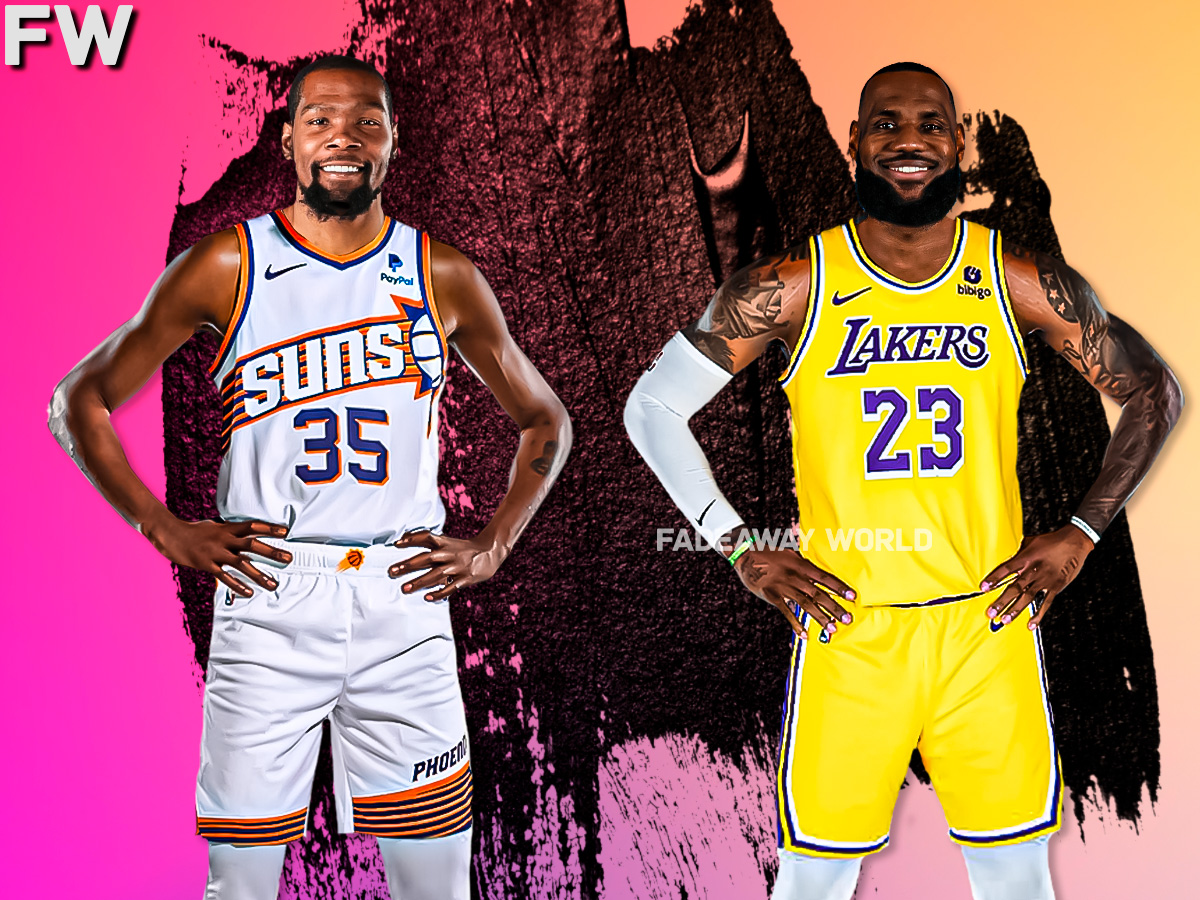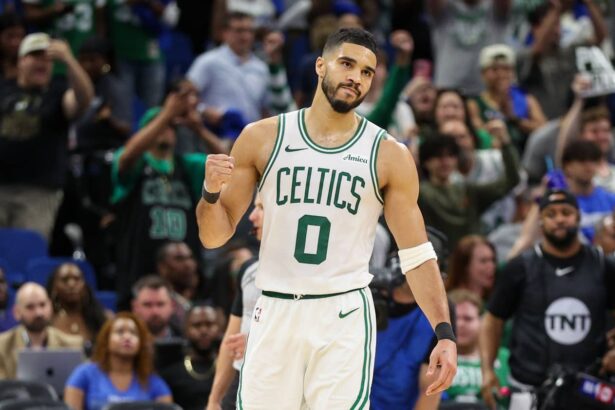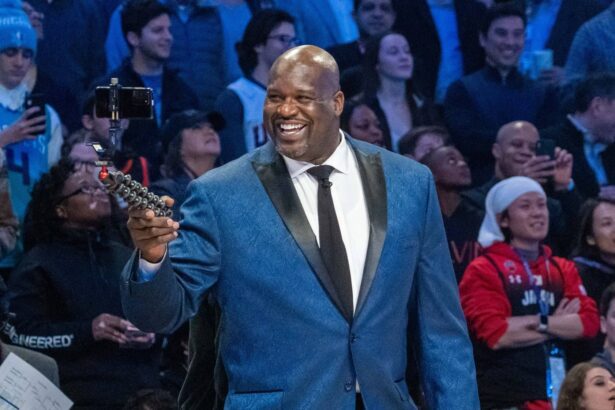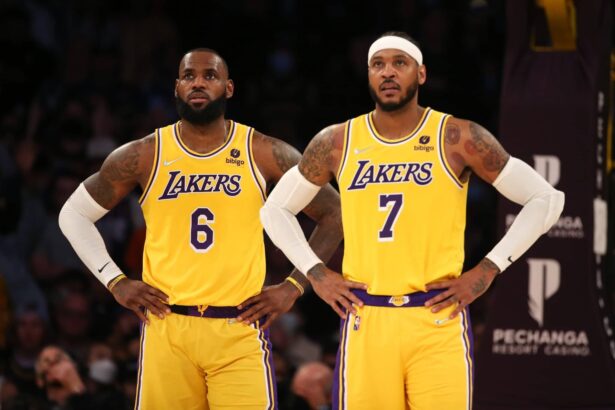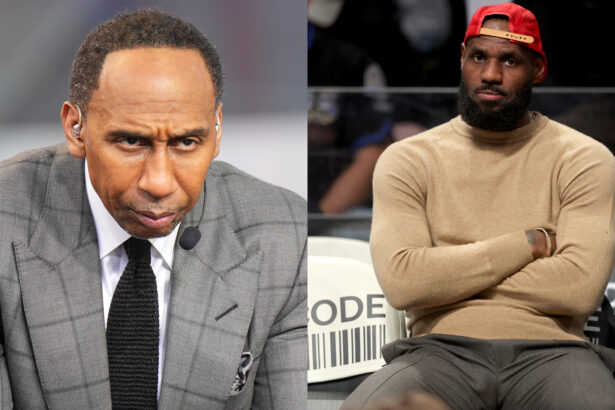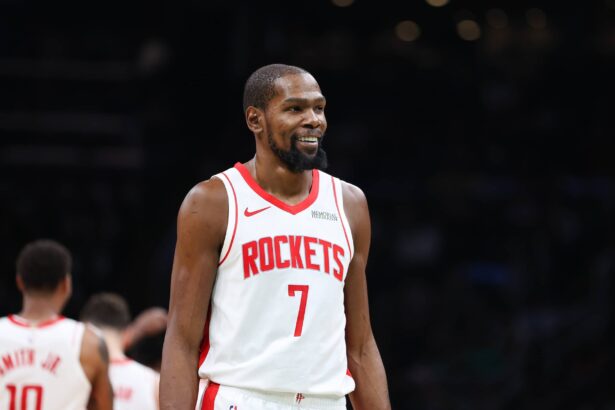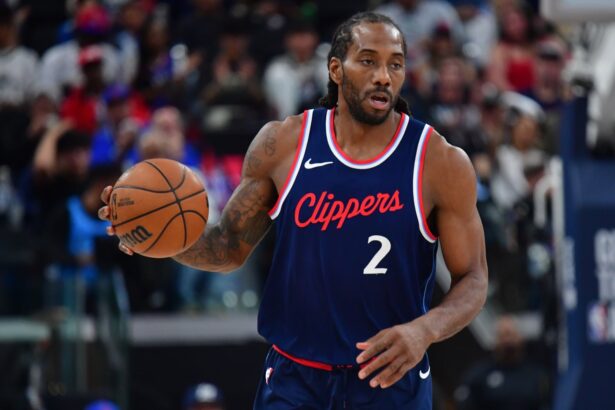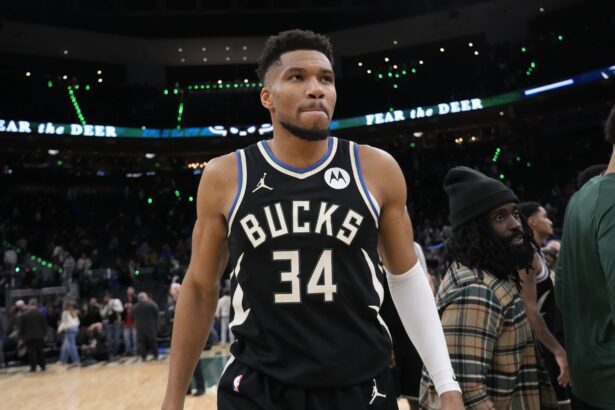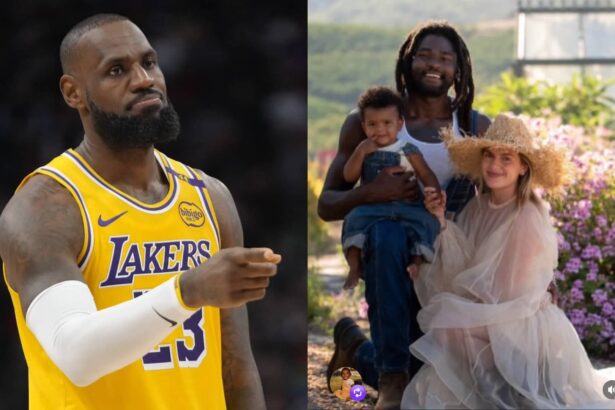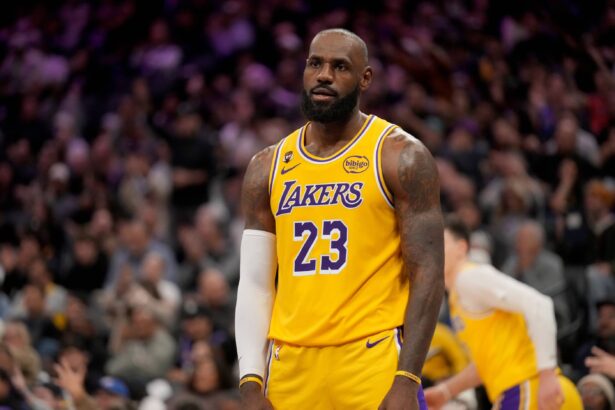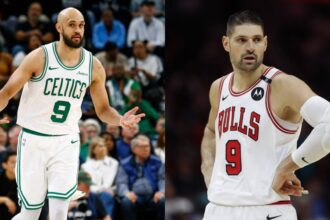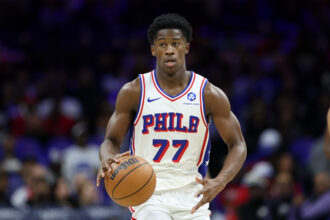In response to a fan’s criticism of LeBron James and Kevin Durant sharing a laugh during their on-court clash, Kevin Durant fired back with a fitting comeback, emphasizing the intensity of competition among friends. The fan expressed disapproval of the friendly interaction between James and Durant, suggesting that athletes should be focused on dominating their opponents without such camaraderie.
“I hate this ‘we all fiends’ laughing during the game shit!! It’s time to go to work, kill these mofos and keep your for on their necks. THIS IS 1 of the reason why MJ23 is the GOAT MJ23 simply killed EVERYONE IN SIGHT!”
I hate this ‘we all fiends’ laughing during the game shit!! It’s time to go to work, kill these mofos and keep your for on their necks.
THIS IS 1 of the reason why MJ23 is the 🐐 MJ23 simply killed EVERYONE IN SIGHT!
— Livin_Life_Blind (@BlindLivin) November 11, 2023
Durant’s response on Twitter conveyed a broader perspective on the dynamics of competition among athletes. He pointed out that:
“At some point, yall non athletes gon realize that friends compete harder against one another.”
At some point, yall non athletes gon realize that friends compete harder against one another.
— Kevin Durant (@KDTrey5) November 11, 2023
Durant’s statement highlighted the nuanced relationship between camaraderie and competition in professional sports.
The exchange on social media shed light on the different viewpoints regarding athletes displaying friendship during games. While some fans appreciate the competitive spirit reminiscent of legends like Michael Jordan, Durant’s perspective suggests that the intensity of competition can coexist with friendships among athletes. This interaction provides insight into the evolving culture of professional sports, where players navigate the balance between rivalry and friendship in their pursuit of excellence on the court.
The Myth That This Generation Is Soft Because They Are Friends Needs To Be Shattered
The notion that the current generation of athletes is “soft” because of their camaraderie and friendships on and off the court is a myth that needs to be shattered. This perspective often arises when comparing the current era to the 90s, an era known for its physical play and fierce rivalries. However, attributing softness to friendship among players overlooks the significant changes in the world, sports culture, and the nature of athlete relationships.
One crucial factor that distinguishes the current era from the past is the rise of social media. Platforms like Twitter, Instagram, and others have made the world more interconnected than ever before. Players have direct access to each other’s lives, creating a sense of familiarity and shared experiences. This connectivity doesn’t diminish competitiveness; instead, it allows athletes to build relationships beyond the court.
Contrary to the myth, the camaraderie among players is not a new phenomenon. In the past, athletes from different teams often socialized, played golf together, shared dinners, and engaged in various off-court activities. The difference is that today’s interconnected world makes these interactions more visible and immediate.
The argument against the current generation being “soft” should be distinguished from critiques related to changes in playing style or physicality. It’s valid to discuss how the game has evolved, emphasizing skill, finesse, and three-point shooting over the brute force of the past. However, criticizing players for being friends misattributes a cultural shift to a decline in toughness.
Friendships among athletes don’t compromise their competitive spirit. Kevin Durant’s response to a fan’s criticism highlighted that athletes can compete even harder against friends. The narrative of competitiveness doesn’t require animosity; it can thrive alongside mutual respect.
Moreover, labeling the current generation as “soft” oversimplifies a complex and evolving sports landscape. Players face immense pressure, scrutiny, and competition, regardless of their friendships. The mental and emotional toll of being a professional athlete remains as challenging as ever.
In conclusion, dismissing the current generation as “soft” due to friendships is an outdated perspective that fails to consider the broader context of societal changes and the evolving nature of sports. Acknowledging the differences in playing style and physicality is a legitimate discussion, but attributing softness to camaraderie is a misguided interpretation of the interconnected world we live in today.
We sincerely appreciate and respect you as a reader of our site. It would help us a lot if you follow us on Google News because of the latest update.
Thanks for following us. We really appreciate your support.

